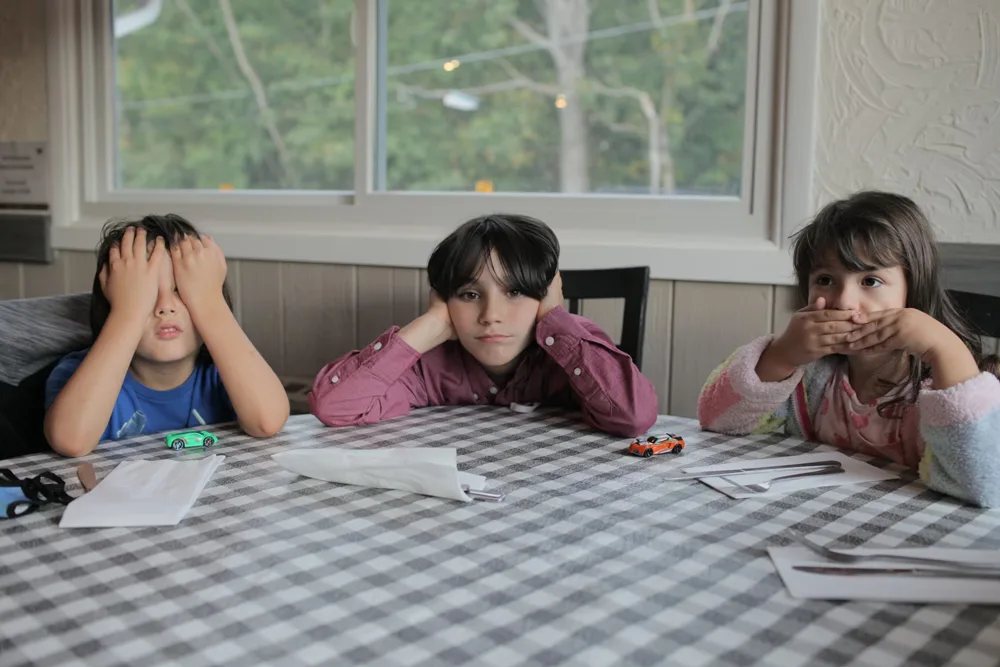A toxic relationship is a damaging dynamic between partners characterized by behaviors such as constant criticism, manipulation, deceit, and emotional or physical abuse. These relationships often arise from deep-seated issues like unresolved personal traumas, unmet emotional needs, or ingrained behavioral patterns. While it’s easy to question why anyone would remain in such a damaging environment, the reality is that toxic relationships often develop gradually. Over time, the toxic behaviors become normalized, and individuals find themselves trapped in a cycle that seems impossible to break.
Many people cling to the hope that their partner will change, or they make excuses for their partner’s behavior, attributing it to stress, work pressures, or past hardships. They might also fear the unknown or the stigma of being labeled as someone who couldn’t make their relationship work. The societal pressure to maintain a facade of a perfect relationship can be overwhelming, causing individuals to remain silent about their struggles. By the time they realize the extent of the damage, the situation may have deteriorated to the point where escaping seems nearly impossible. This entrapment is further compounded by financial dependencies, shared responsibilities like children, and emotional attachments that are difficult to sever.
In such scenarios, it’s not just the partners who suffer. Children who grow up in toxic households are silent witnesses to the chaos, absorbing the tension and hostility that permeate their environment. They may not understand the complexities of the relationship, but they can feel the stress and discord. This exposure can have immediate and long-term detrimental effects on their mental health. Young minds are impressionable, and continuous exposure to conflict and negative interactions can lead to anxiety, depression, and other mental health issues.
Recognizing and addressing the needs of children in toxic environments is crucial. It’s not only the direct victims who need support and healing; children who witness these toxic dynamics are also victims and deserve attention and care. Their trauma is real and can manifest in various ways, requiring a concerted effort to help them heal and develop into healthy, well-adjusted adults.
Distorted image of what relationships are like
Growing up in a household plagued by toxicity skews a child’s understanding of what constitutes a healthy relationship. Instead of witnessing mutual respect, effective communication, and emotional support between partners, they see conflict, manipulation, and abuse as the norm. In the absence of positive examples, they unwittingly internalize these dysfunctional behaviors, believing them to be intrinsic to romantic relationships.
Children are like sponges, absorbing everything around them, including the negative dynamics of their parents’ relationship. As they navigate their own romantic journeys in adulthood, these learned behaviors resurface, often manifesting in harmful ways. Studies have shown a disturbing correlation between childhood exposure to domestic violence and the perpetuation of abusive behavior in adulthood. Individuals who witnessed or experienced abuse as children are more likely to become either victims or perpetrators of domestic violence later in life.
The cycle of abuse is insidious, perpetuated by the belief that this is the only model of relationship dynamics available. Without intervention, children raised in toxic environments may unconsciously replicate the patterns they witnessed, perpetuating the cycle of violence and dysfunction. For some, violence becomes a learned response to conflict, ingrained through years of observation and conditioning.
It’s a sobering reality for bail bondsmen such as Future Bail Bonds, that many individuals arrested under domestic violence charges have a history of exposure to such behavior in their formative years. For them, violence may not be a choice but a learned coping mechanism, passed down through generations. When they get out of custody they need the help of a lawyer so they can argue at their trial that they were pre-conditioned to violence. While this may help lessen charges, the truth is that they need psychological intervention and education to develop the awareness or skills necessary to break free from this destructive cycle.
Breaking this cycle requires a concerted effort to provide children with alternative models of healthy relationships. It involves teaching them that love is not synonymous with control or manipulation and that conflict can be resolved through dialogue and mutual respect.
The burden of guilt
Children raised in toxic environments often internalize the dysfunction around them, blaming themselves for their parents’ conflicts and unhappiness. Whether it’s witnessing heated arguments or experiencing direct emotional manipulation, they absorb the message that they are somehow at fault for the discord within the family unit. This misplaced guilt can shape their worldview and self-perception, leading to profound consequences that extend well into adulthood.
Feeling responsible for their parents’ struggles is an immense burden for a child to bear. It distorts their sense of self-worth, fostering feelings of inadequacy, shame, and unworthiness. They may believe that if only they were better behaved, smarter, or more obedient, their parents would be happier. This internalization of blame creates a toxic cycle of self-criticism and negative self-talk, undermining their confidence and self-esteem.
As these children grow into adulthood, the effects of this early conditioning continue to haunt them. They may struggle with intimacy and vulnerability in their relationships, fearing that any perceived imperfection will lead to rejection or conflict. This fear of abandonment or failure can drive them to seek validation and approval from others, perpetuating a cycle of codependency and unhealthy relationship dynamics.
The constant stress of feeling responsible for their parents’ happiness and well-being can take a toll on their emotional resilience, making it difficult for them to cope with life’s challenges and setbacks.
They need healing as much as the other parent
In the aftermath of a toxic relationship, much attention is understandably directed towards the partner who endured direct harm or abuse. However, it’s essential not to overlook the silent sufferers—the children who bore witness to the turmoil without being subjected to physical harm themselves. Despite not experiencing direct abuse, children of toxic relationships are undeniably victims in their own right.
The trauma of witnessing a parent suffer takes a profound toll on a child’s emotional well-being. They absorb the tension, fear, and despair that permeate the household, internalizing the chaos as their own. Even if they were never the target of abuse, the psychological impact of living in a toxic environment leaves lasting scars.
These children need healing just as much as their abused parent counterparts. Their pain may not be as readily apparent, but it is no less real. Without acknowledgment and support, they risk carrying the weight of their childhood trauma into adulthood, perpetuating the cycle of dysfunction in their own lives and relationships. Recognizing their status as victims is the first step towards providing them with the healing and support they need to break free from the shadows of their past.
Children trauma and adult ADHD
Children exposed to the trauma of toxic relationships are susceptible to developing post-traumatic stress disorder (PTSD), a condition typically associated with veterans or survivors of extreme events. The constant exposure to conflict, fear, and instability can leave a lasting imprint on their young minds, leading to symptoms such as hypervigilance, flashbacks, nightmares, and avoidance behaviors.
Interestingly, the manifestation of PTSD symptoms in children may resemble attention deficit hyperactivity disorder (ADHD) in adulthood. This overlap occurs because both conditions can present with symptoms like impulsivity, difficulty concentrating, and restlessness. There are suggestions that childhood traumas can lead to ADHD, a neurodevelopmental disorder. In other terms, childhood trauma can forever transform the brain of a child in ways that are not curable.
They can’t break the cycle alone
Breaking free from the cycle of toxic relationships is a formidable challenge, particularly when it’s the only model of intimacy and connection one has ever known. For individuals raised in such environments, toxic behaviors may feel instinctual, ingrained through years of observation and adaptation. However, the stakes are higher than personal liberation; breaking the cycle is essential to creating a safer and healthier environment for future generations.
Recognizing healthy relationships and habits can be a daunting task for those whose reference points are steeped in dysfunction. This is where external support and intervention become invaluable. Therapy, support groups, or mentorship programs can offer guidance and encouragement as individuals navigate the unfamiliar terrain of healthy relationships. Learning to recognize and prioritize mutual respect, trust, and effective communication lays the foundation for building fulfilling connections based on love rather than control.
Central to this journey is the cultivation of healthy communication habits. In toxic relationships, disagreements often escalate into abuse or manipulation, leaving scars that endure long after the conflict has subsided. Breaking this pattern requires learning alternative ways of resolving conflicts, rooted in empathy, active listening, and assertive expression of needs and boundaries. By modeling and practicing healthy communication techniques, individuals can dismantle the cycle of aggression and cultivate relationships built on understanding and compromise.
Moreover, understanding that disagreements are a natural part of any relationship is crucial. In toxic environments, conflicts are often avoided or suppressed, leading to simmering resentment and explosive outbursts. By teaching children that disagreements can be discussed openly and respectfully, parents equip them with the tools to navigate conflict constructively. Failure to impart these skills can result in adults who struggle to address conflict effectively, resorting to the same destructive patterns they witnessed in their parents’ relationship.
In conclusion, when we talk about toxic relationships, we often fail to understand the true extend of their consequences for the children who witness them. They do not need to experience toxic abuse directly, as what they see and hear at home will still mark them forever.






